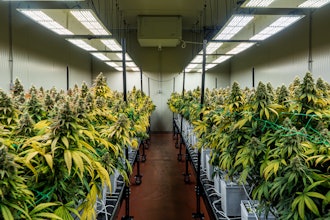
California asked for feedback from licensed cannabis business operators on the state’s cannabis tracking system and now the Department of Cannabis Control (DCC) is making some changes.
Following listening sessions that spanned a year, the DCC in California is rolling out technical improvements, training and increased functionality that will benefit licensees, local governments and state partners and continue to support the licensed cannabis market.
DCC is working with California Cannabis Track and Trace (CCTT) provider, Metrc on more than a dozen improvements that will allow licensees to save time when inputting data, give the DCC greater access to monitor and flag system performance issues and give local governments that permit cannabis businesses access to licensee information.
System enhancements should result in faster system response times by November and include California-specific training modules and in-person training sessions starting next year.
The changes include:
- Time-Saving: In November, improvements will be made to the way data is uploaded in the system, allowing licensees to process data batch uploads while performing other tracking tasks more efficiently. This new functionality will allow licensees to upload multiple CSV files at a time.
- Improved Data Access: DCC is also working with Metrc to ensure department staff and local jurisdictions have better access to extract and analyze licensee data, increasing transparency and better informing policy and compliance decisions.
- Education: New resources will provide step-by-step instructions for licensees to locate and attend California-specific training modules, including a simplified process to become credentialed, with in-person trainings starting in 2023. DCC staff will also receive additional training to increase proficiency on system modifications and use, allowing them to provide informed guidance and assistance to licensees.
- Sustainability: Later this month, and after calls for the development of more earth-friendly plant tags, DCC and Metrc will begin testing more sustainable tag prototypes.
- Technical Oversight: DCC access to the Metrc system performance monitoring tools will allow staff to see when there are performance issues in real-time, alert licensees, and work with Metrc to remediate challenges.
- Market Integrity: System improvements, including upgrades to the reporting system, will allow DCC to more easily review data anomalies, allowing the state to prioritize inspections that support the integrity of the licensed cannabis market and educate licensees who may be accidentally misreporting information. Other enhancements will allow retailers to enter additional information about consumer sales, allowing for a more efficient tax auditing process.
DCC Director Nicole Elliott and members of the department’s policy, compliance and public affairs teams recently returned from a listening tour with craft and legacy cultivators and manufacturers in the Emerald Triangle, including licensees in Sonoma, Humboldt and Mendocino counties. Staff also met with licensees in Sacramento, Nevada and Santa Barbara counties where they engaged in productive conversations about pain points in the regulated market and received broad feedback about Metrc system improvements.
Director Elliott encouraged licensees and local cannabis regulators to continue providing feedback to staff to help improve user experience and provide feedback on system improvements that would improve analytics. Metrc-focused listening sessions and site visits will continue through the end of the year to inform additional user-requested improvements.
DCC staff will meet with Metrc biweekly to continue focused conversations on improvements. Metrc has hired a California-based executive who is knowledgeable about the state’s specific cannabis laws and will keep working with DCC staff to meet the needs of stakeholders, including licensees. As improvements come online, DCC will continue to engage licensees, local governments and other stakeholders to ensure they’re aware of developments and capture additional feedback.\






















